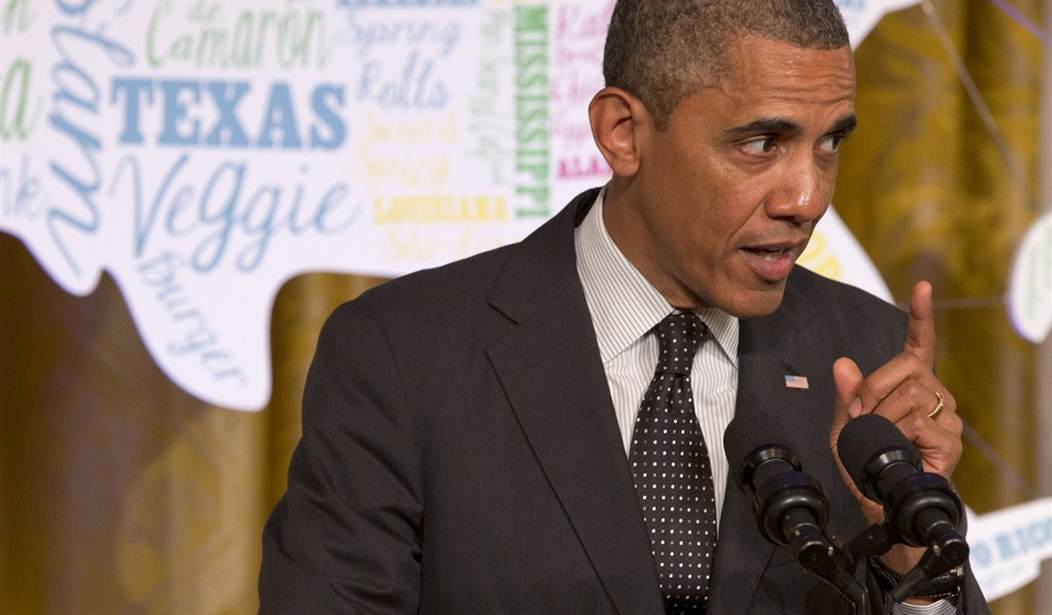Should the federal government cut spending? Put that question to the American people and you’re likely to get a “yes” in response. A recent poll by Rasmussen Reports found that 65 percent of Americans believe that cutting spending will help to ease the nation’s economy woes.
Unfortunately, the president and his allies in Congress have refused to entertain significant cuts to Washington spending. The president’s misguided position was perhaps best encapsulated when he told House Speaker John Boehner that “we don’t have a spending problem.”
This is a far cry from the president’s position four years ago, when he expressed concern about spending and pledged to cut the federal budget deficit in half by the end of his first term. That didn’t happen. Instead, historically high deficits continued at more than $1 trillion each year, and today the national debt has ballooned to nearly $17 trillion.
These basic facts reflect a disturbing reality. Runaway federal spending is threatening the strength of our economy—as well as our nation’s ability to defend itself and protect freedom around the world.
You’ve seen the economic statistics. Since President Obama took office, our country’s national debt has grown by nearly 50 percent. The national unemployment rate is 7.6 percent, only slightly lower than when the president was elected, with millions of Americans having exited the workforce and given up seeking employment. The economic growth that fuels prosperity continues to be elusive.
Recommended
It’s difficult to consider these facts and not conclude that they are related to the orgy of federal spending, which is dragging down our economy.
Think about it this way. In Ohio, the median income per household is around $48,000 per year. If your family was the U.S. government, you would be spending $66,000 a year, or $18,000 more than what the household is bringing in. How long would your financial position remain viable at that rate of spending? How would it affect your future well-being?
But for those of us who are concerned about our nation’s stature as a world leader, this trend is even more alarming: overspending and economic weakness are compromising our national security.
That’s the opinion of Admiral Mike Mullen, former chairman of the Joint Chiefs of Staff and a highly respected thinker on military issues. Mullen has warned repeatedly that “the most significant threat to our national security is our debt.”
Mullen recognizes that a strong economy is the foundation upon which a strong military rests. When the U.S. economy is healthy and growing, we can invest in providing our men and women in uniform with the best technology and training they need to achieve their mission.
As a veteran of the U.S. Navy, I’ve seen how our nation’s investment in a strong defense has made the world safer, freer and more stable. And I also recognize how that defense is jeopardized by Washington’s orgy of overspending.
The most recent evidence is the looming cuts to defense under “sequestration” that began in March. This process will reduce defense spending by some $500 billion over the next decade.
So maybe that’s a good start toward getting our runaway spending under control? Not entirely. Obviously, reductions in defense spending are understandable and even necessary, given that the wars in Iraq and Afghanistan are coming to an end. And the Department of Defense must continue working to eliminate inefficient and wasteful spending.
The problem is that we’re not dealing with the real spending problem. The defense cuts under sequestration will do little to reduce the deficit, and nothing to reduce the debt (the nation still is slated for a deficit of $642 billion this year, even with the cuts). The only way to cut deficits and begin to bring down the debt is to tackle the biggest spenders in the federal budget—entitlement programs like Social Security, Medicare and Medicaid.
To ensure that the debate on spending receives proper focus, Concerned Veterans for America (CVA) is hosting a special panel presentation in Washington, D.C., on July 11 titled “The Need for Spending Reform.” Speakers will include former Democratic Gov. Ed Rendell of Pennsylvania, Sen. Marco Rubio (R-Fla.) and Sen. Ted Cruz (R-TX), who will offer a bipartisan view on what’s needed to tackle the debt. To watch online, go to www.concernedveteransforamerica.org.
It’s time for President Obama and Congress to work together to restrain runaway spending in Washington—and not just in the defense budget, but in our expensive health care and retirement programs as well. We must reform these programs to make them solvent for future generations, and fix our bloated balance sheet. We can’t afford more delays.

























Join the conversation as a VIP Member